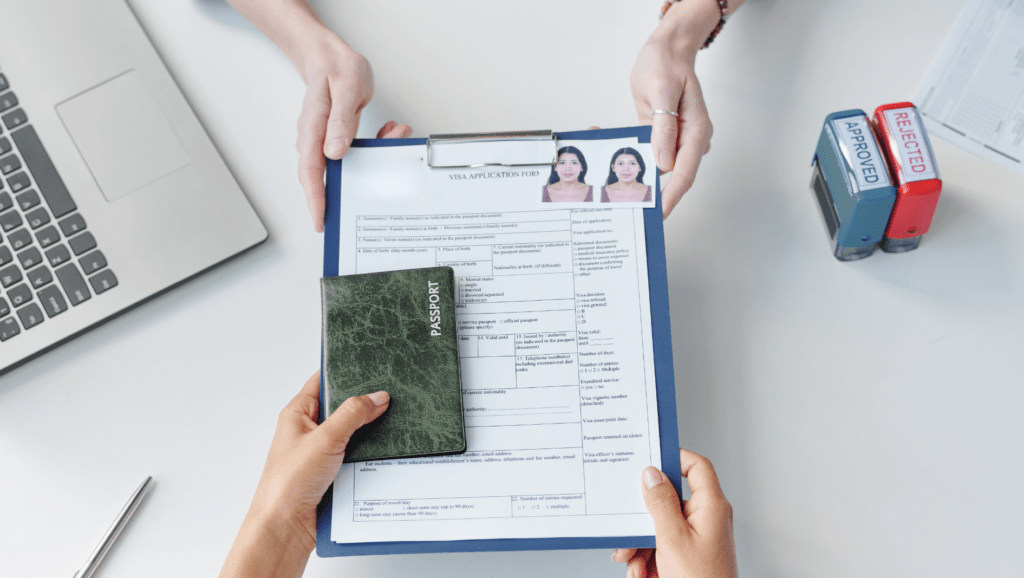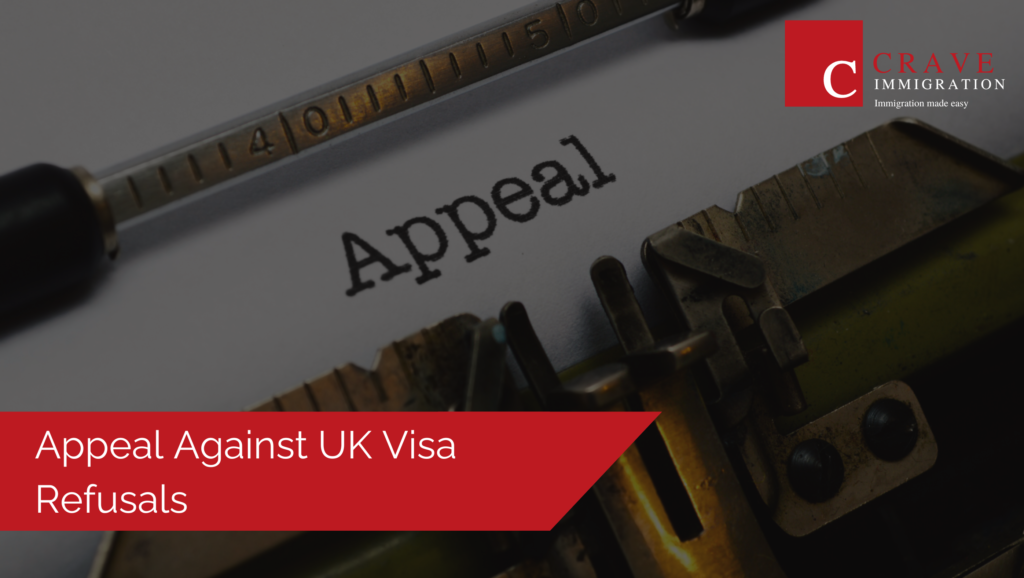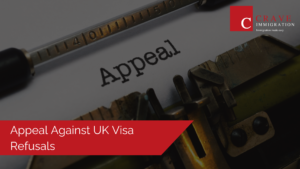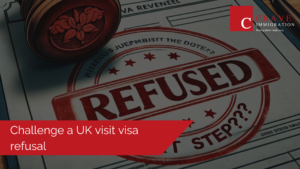Have you received a UK immigration refusal and feel overwhelmed about what to do next? Don't worry—Crave Immigration is here to guide you through the appeals process, making it simple and understandable. Many people feel intimidated by the thought of going to court or dealing with legal proceedings, but understanding your rights and the procedures can make a big difference.
Why Was My Visa Refused? Understanding the Basics
Before diving into the appeal process, let's take a moment to understand why your application was rejected. Was it missing documents? Maybe there were concerns about your finances or immigration history. Whatever the reason, knowing the 'why' is the first step in figuring out the 'how' to appeal. Common reasons include.
- Incomplete applications.
- Failure to meet the eligibility criteria, or
- Insufficient evidence of your circumstances.
Understanding ‘Why’, the next step would be to see if you have a right to appeal or not.
Do You Have the Right to Appeal?
Not all decisions can be contested. Typically, you can lodge an appeal if your claim involves human rights or if you've been refused asylum. For some visa categories, you might only be eligible for an administrative review. Your decision letter will clearly state whether an appeal is an option for you. If you're unsure, Crave Immigration is here to help clarify your rights.
It usually states “You can appeal this decision. You have 14 or 28 days from the date you receive this decision to appeal….”
Explore more below when you must file an immigration appeal within 14 days and when you are allowed 28 days to lodge it.

Understanding the Appeal Process: A Step-by-Step Guide to Challenging Your UK Visa Refusal
Now that we have talked about why your immigration application can be refused, let's move forward to the appeal process itself. Think of it like this: it's your chance to present your case to an independent body called the First-tier Tribunal (Immigration and Asylum Chamber). They are like the referees in a game – they listen to both sides and make a fair decision. But remember, you are not going into this alone. There are rules and procedures to follow, but we'll guide you through every step of the way.
Step 1: Filling an Appeal
Appeals should be submitted using the appropriate forms and accompanied by the necessary fee (£80 for a paper appeal, £140 for an oral hearing). Some applicants may qualify for fee waivers or reductions, so it’s worth checking if you fit those criteria.
Depending on your specific situation, you’ll need to select the correct appeal form. This could be a standard appeal to the First-tier Tribunal or, in complex cases, moving directly to seeking an administrative review or judicial review.
Crave Immigration can guide you through the process, ensuring you select the appropriate form and submit it correctly. Alternatively, for those who need legal representation, we can arrange your representations directly with them.
Timing is Crucial:
If you're in the UK, you must lodge your appeal within 14 days of receiving the decision.
If you're outside the UK, you have 28 days to file your appeal from the date you receive the decision.
Personal Insight: Don't rush through filling out your appeal form. Mistakes or omissions can delay the process or affect the outcome.
Step 2: Preparing your evidence bundle
Gathering Comprehensive Evidence:
- Collect all relevant documents that support your case. This can include your application form, refusal notice, personal statements, witness statements, and any other supporting documents such as medical records, financial statements, or evidence of family life.
- Ensure that your evidence is clear, organized, and directly addresses the reasons for refusal stated in your decision letter
Considering Legal Representation:
- Consider hiring an immigration lawyer to help you prepare and present your case. Legal experts can provide valuable advice on how to strengthen your appeal and ensure all procedural requirements are met.
- If you cannot afford legal representation, seek assistance from organizations that offer free or low-cost legal aid.
Step 3: The Hearing
What You Can Expect at the Tribunal?
Oral Hearing: If you choose an oral hearing, you and any witnesses will present your case in person before a judge. This allows you to explain your situation and respond to any questions. If you or your witnesses need special arrangements (e.g., an interpreter or support for a vulnerable person), inform the tribunal in advance to make the necessary accommodations
Paper Appeal: If you choose a paper appeal, the judge will make a decision based solely on the documents you submit without a hearing.
After the Hearing: Understanding the Outcomes
Possible Outcomes:
If you win: The tribunal may overturn the Home Office’s decision, granting you the immigration status you sought.
If you lose: If the appeal is dismissed, you might still take your case further by applying to the Upper Tribunal if you believe there was a legal error in the decision-making process.
Win or lose, knowing your options post-hearing is crucial. If successful, you’ll proceed based on the tribunal's directive. However, if the appeal doesn’t go your way, considering an onward appeal to the Upper Tribunal might be your next step. Always seek professional advice to understand the best course of action tailored to your specific situation.
Conclusion:
Feeling overwhelmed? It's okay, take a deep breath. You don't have to navigate the appeal process solo. That's what we're here for. Whether you need a solicitor, an immigration adviser, or just someone to listen and offer advice, we've got your back. We'll help you understand all that legal jargon and make sure you're prepared every step of the way.
FAQs
Do I need a lawyer for a UK immigration appeal?
Ans: While not mandatory, legal representation is recommended due to the complexity of immigration law.
Can I appeal if my initial UK immigration appeal is denied?
Ans: Yes, further appeals may be possible, such as to the Upper Tribunal, depending on the case.
What happens during an immigration appeal hearing?
Ans: During a hearing, a judge reviews the evidence and listens to arguments from both you (or your representative) and the Home Office.
Can I work or stay in the UK while my immigration appeal is ongoing?
Ans: It depends on individual circumstances and the type of visa previously held.






